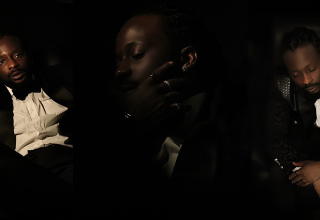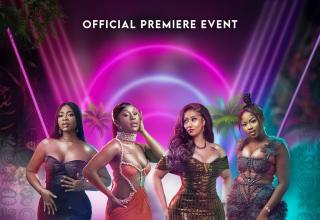A great number of documentaries have exploited the global issue of racism against people of color in terms of constitutional rights, work, education privileges and the unfair brutal killings that unlawfully associate with the black race.
On Monday May 25, 2020, the tally of African-Americans killed in the United States by police officers received an additional stroke when 46-year-old George Floyd was murdered by a white police officer Derek Chauvin in Minneapolis, Minnesota. The crime has resulted in civil unrest in the US extending to London and other parts of the world, where both black and anti-racist white folks have engaged in demonstrations demanding for a stop in such unfair treatments.
Over the past years where racism has been a battling cancer in the black community, documentarians as well as film makers who occasionally visit the hub of documentary-making have produced a great wealth of works that highlight the inhumane and unjust treatment that black people have had to live with in order to survive a day or make their voices heard at a point.
Now more than ever amidst the ongoing protest is the need for concerned individuals to educate themselves on the right steps to take, right words to say, right message to put across on social media, to help curtail the injustice.
Aligning with such actions requires understanding the matter, of which we have assembled a handful of documentaries that highlight the incidents of color discrimination for you to consult as a guiding manual in this time of Black Lives Mater protest.
13th
With constructive contributions from Kevin Gannon, Angela Davis, Senator Cory Booker, Michelle Alexander, Jelanie Cobb and others, Ava DuVernay highlights the loophole left in the thirteenth amendment to the United States constitutions, which subjects African-Americans to slavery within the country in the event that they are being convicted for a carried-out crime. The film provides clear reasons as to why there is a rise in the number of colored people locked up in the US. It is available to stream on Netflix.
Explained: The Racial Wealth Gap
Narrated by Samira Wiley with a voice appearance from Jay Z, the documentary hits on how slavery, housing discrimination and centuries of inequality have added up in creating a racial wealth gap.
Time: The Kalief Browder Story
The real-life story of Kalief Browder, a 16-year-old who committed suicide after his release from Rikers Island jail. Browder was convicted for allegedly stealing a backpack. His case was never prosecuted but spent three years in prison out of which two were spent in the solitary confinement. The six-part episode docu-series is available to stream on Netflix.
When They See Us
Among the catalog of Ava DuVernay’s award-winning documentaries is the true-life story of five young boys, who were innocently charged with the crime of raping and assaulting a jogger in Central park in 1989. The four-part episode docu-series is available to stream on Netflix.
Who Killed Malcom X?
Decades after the assassination of civil rights black leader Malcom X, Abdur – Rahman Mohammad a certified Historian and journalist in Washington DC explores the murder to unravel the real perpetrators of the crime. Aside the crime investigation, the docu-miniseries offers an insight into the beliefs of the late activist. It’s available to stream on Netflix.
I Am Not Your Negro
Reoul Peck examines the unfinished work of the late James Baldwin, who intended to tell the story of three African-American activists, Malcom X, Martin Luther King Jr., and Medgar Evers in his uncompleted book ‘Remember This House’. The documentary feeds on gathered footage of Baldwin’s television appearances, Civil Rights Movement and an account on some of the earliest Black Lives Matter Movements. Variety reports that the documentary will be made available to watch freely as part of the ongoing BLM education, on June 7 in communities such as Akron, Ohio; Charlotte, North Carolina; Detroit, Michigan; Macon, Georgia; Miami, Florida; Philadelphia, Pennsylvania; San Jose, California; and St. Paul, Minnesota.
Dark Girls
‘Dark Girls’ is an emotional exposé on what it means to be dark skinned in America. Filmmakers D. Channsin Berry and Bill Duke capture moving interviews with women who open up about their experiences being dark, Black women in America. They share painful stories about things their mothers, sisters and friends have said, in addition to what they’ve taken away from mass media. Overwhelmingly these interviews reveal the same thing: To them, Black is not beautiful.
The Black Power Mixtape
Archival footage shot by Swedish filmmakers decades ago was found and revived for this film, which examines the anti-war and Black Power movements. Modern black activists and scholars provide commentary on the cultural and societal waves that helped bring change forward. Available to stream on Amazon Prime Video
To support the BLM course, you can make a donation to help aid the release of arrested protesters by visiting the below sites
Official George Floyd Memorial Fund
American Civil Liberties Union
National Bail Fund Network or local bail funds across the US
National Police Accountability Project
Or you can sign the petitions made available below
Sign the Justice for George Floyd petition here.
Sign the petition for #WeCantBreathe here.
Sign the Justice for Belly Mujinga petition here.
Sign the Justice for Breonna Taylor petition here.
Sign the Justice for Tony McDade petition here.
Sign the petition to raise the degree for Derek Chauvin’s murder charge here.
Sign the petition for the UK government to condemn President Trump’s response to BLM protests here.


















